Steven Pressfield's Blog, page 17
November 16, 2022
A Goddess at our Shoulder
We were getting a little airy-fairy in our last post, speculating that some Unseen Cosmic Force of justice compels you and me onto our ordeals “in the wilderness.”
Let’s stay in the same lane today.
Let’s go back to the Odyssey and see what happens if we take Homer’s epic literally.
One of the aspects of the Odyssey that is often overlooked, probably because it’s so up-front and in-your-face, is that Odysseus throughout his ten-year ordeal is accompanied, aided, and advised by the goddess Athena.
More than once, when our hero washes ashore on some unknown isle, the goddess steps in to transform his appearance, making him look younger and more handsome so that he has a better chance of being welcomed by the inhabitants. Athena counsels Odysseus. She guides him. He pours out his woes to her and she responds with wisdom and kindness.
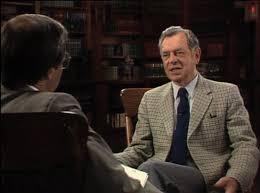 Joseph Campbell with Bill Moyers on the 1988 PBS series, “The Power of Myth”
Joseph Campbell with Bill Moyers on the 1988 PBS series, “The Power of Myth”What does this mean? Is it just a literary device? Did Homer really believe that the real Odysseus really did possess an immortal companion—a deity on the scale of Athena, for whom Athens was named and whose temple, the Parthenon, remains one of the architectural wonders of the world?
More importantly for you and me on our sojourns in the wilderness … do we have any help? From anywhere?
If some Unseen Force of justice compelled Odysseus onto his journey (and compels you and me on ours), could there also be a countervailing Force of Wisdom that can come to our aid as well?
You won’t be surprised, I’m sure, when I say I believe there is such a force … and that it is working for you and me even in—specifically in—our darkest moments. Here’s Joseph Campbell on what he calls “the hero path.”
We have not even to risk the adventure alone, for the heroes of all time have gone before us. The labyrinth is thoroughly known … we have only to follow the thread of the hero path. And where we had thought to find an abomination we shall find a God. And where we had thought to slay another we shall slay ourselves. Where we had thought to travel outwards we shall come to the center of our own existence. And where we had thought to be alone we shall be with all the world.
What Joseph Campbell means, as I understand it, is that on some higher or deeper level of consciousness, our ordeal “in the wilderness” has been laid out for us, like a map from a navigation app, and that signposts and constellations are already in place to guide us.
As we are “made to” stray grievously about the coasts of men, we’re also channeled infallibly, whether we believe it or not, into pathways that will serve us ultimately—even if we have no clue in the moment and even if, in reflection, we dismiss the whole process as hogwash.
Our time in the wilderness is our “hero’s journey,” complete with the acts of being cast out, the ordeal of wandering, and the return home.
I’ll go even further (with no evidence of course) from my own life. I believe that the people we encounter in our wilderness condition were guided to us, or us to them, for some unknown but mutually beneficial purpose. My upcoming memoir, Govt Cheese, is broken into eight books. Each one is named after a mentor—a boss, a teacher, a partner—all of whom appeared, as far as I can tell, at once randomly and also with cosmic purpose.
They were my “little divinities” and the actions they took toward me, whether they knew it or not (99% not), were the kicks in the ass and the pats on the back I needed—and at precisely the point I needed them. Not Athena maybe, but the next best thing.
The post A Goddess at our Shoulder first appeared on Steven Pressfield.November 9, 2022
Justice in the Wilderness
Today I want to get to my favorite—and the most provocative—phrase in that passage from the Odyssey that we’ve been examining for the past two weeks.
To refresh our memory, here’s the full text:
… the various-minded man who, after he had plundered the innermost citadel of hallowed Troy, was made to stray grievously about the coasts of men, the sport of their customs, good and bad, while his heart ached with an agony to redeem himself and bring his company safe home.
What part hooks me the most?
… was made to stray …
Specifically, “was made to.”
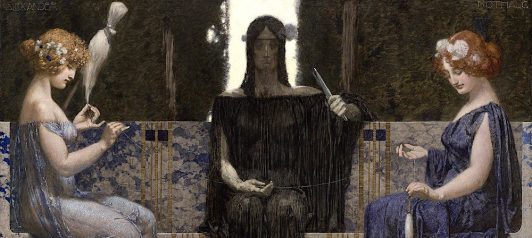 The Three Fates by Alexander Rothaug
The Three Fates by Alexander RothaugWho “made” Odysseus undergo his ten years in the wilderness? The translation I’m quoting from is by T.E. Lawrence, i.e. Lawrence of Arabia, who was an Oxford-educated Classical scholar and, for sure, no one to be imprecise. So …
If Odysseus, after he had committed a crime against heaven—plundering the innermost citadel of hallowed Troy—“was made to stray grievously etc.,” doesn’t that imply some cosmic engine of justice? The Fates? The Furies? Almighty Zeus himself?
Which brings up a Big Question. Is there in the fabric of the universe some scale-balancing force of Justice or karma or whatever we might choose to call it? Could this possibly be true? And if it is, did this entity somehow enforce punishment upon Odysseus?
We could say that something in the hero’s psyche—a sense of guilt or remorse perhaps—drove him himself to create his own ordeal. But that seems, to me at least, like an overly modern interpretation of this mysterious mechanism.
I believe there IS some force of Justice in the Cosmos. I believe Homer chose exactly the phrase and the sequence of crime and punishment he intended.
Our hero commits a crime against heaven.
No earthly tribunal judges him. Seemingly Odysseus gets away with it.
But some unseen force of payback or retribution intervenes. This force. by some mysterious means, sends storms to blow our hero’s ship off-course; it maroons him and his crew on god-forsaken isles. The force is always one step ahead of Odysseus. It buffets him from catastrophe to ordeal to disaster, foils his enterprises and stratagems, brings his most cunning designs to nothing.
Is any of this sounding familiar? In our own passages through the wilderness, yours and mine, isn’t there a feeling of some Cosmic Hand pushing us this way and that, tugging us back just when we seem to be making progress, shoving us over a cliff when we lapse even a little?
The good news—if this scenario contains any element of truth—is that our odyssey through exile POSSESSES MEANING. It is not random. It is not without significance.
If you and I have been “made to” suffer an ordeal of exile and banishment from ourselves, there must be meaning to it. Otherwise, why is some unseen force making us to stray grievously?
In other words, the mystery of our ordeal is not without a solution. The passage is not devoid of a culmination.
If you and I were made to stray, then there was a cause. Something we had done or failed to do. And hidden within that action or inaction was a violation of some law or precept. Not a human law perhaps, but a law that the gods know. And our way out, if this is true, can only be found in identifying this felony and coming clean about it, if only to ourselves—and then serving our sentence, doing our time.
Oh, by the way. If you and I are writing a story—any story, fiction or nonfiction—the scenario above is our spine.
The post Justice in the Wilderness first appeared on Steven Pressfield.November 2, 2022
Odysseus in the Wilderness #2
Let’s jump back into the Odyssey and see what else we can glean from Homer’s synopsis of his hero’s ordeal “in the wilderness.”
…. this song of the various-minded man, who, after he had plundered the innermost citadel of hallowed Troy, was made to stray grievously about the coasts of men, the sport of their customs, good and bad, while his heart, through all the seafaring ached with an agony to redeem himself and bring his company safe home.
Here’s my third takeaway from this passage:
… while his heart ached with an agony to … bring his company safe home.
Home.
All Odysseus wanted (and all you and I want on our passage) is to get home.
But what does “home” mean in mythic/legendary/metaphorical terms? It means that place where we belong. It means that sphere of action or contemplation that is our soul’s true epicenter. It means the Self we were born to be.
 “A journey that’s homeward-bound”
“A journey that’s homeward-bound”So why did we leave home in the first place? Maybe we were too young or too deluded to see it for what it was. Maybe we were cast out, as in last week’s post, by a crime we had committed or that someone had committed against us. Maybe “home” had become intolerable to us or wasn’t ready for the self we wished to become. Maybe we were summoned away to an emergency of our own or of someone to whom we were obligated, as Odysseus was by Agamemnon to the siege of Troy. Or maybe we just dreamt of “something better.”
And the end of all our exploring
Will be to arrive where we started
And know the place for the first time.
This is T.S. Eliot from Little Gidding, but it could have been Homer as well. For the Ithaca that Odysseus returned to after his ten years “in the wilderness” was not the same place he had left, nor was he the man he had been a decade earlier.
The point for me is that our odyssey, whatever form it takes, is not random. It’s not going nowhere. Herman Melville in White-Jacket wrote, “Life is a voyage that’s homeward-bound.”
Whether that’s true or not, or whatever meaning Melville intended, certainly our passage “in the wilderness” is a voyage whose ultimate aim is the discovery of our True Home, our authentic Self, the calling or love that is ours alone.
It’s interesting to me that the way Homer describes Odysseus’s ordeal is not in terms of physical torment, as, say, Prometheus bound upon his Rock or Sisyphus toiling on his hill. Rather, the poet phrases it as a passage whose pain comes from being far from home.
… was made to stray grievously about the coasts of men, the sport of their customs, good and bad …
If you’ll forgive me for digressing to Liverpool in 1965, here are a few verses from Gerry and the Pacemakers that I’ve always hoped to be able to say for myself.
The post Odysseus in the Wilderness #2 first appeared on Steven Pressfield.
So ferry ‘cross the Mersey
Cuz this land’s the place I love
And here I’ll stay
And here I’ll stay
Here I’ll stay.
October 26, 2022
Homer in the Wilderness
We suggested in the last two posts that some form of “sojourn in the wilderness” seems to be necessary for the evolution of the soul. Let’s check in, then, with the seminal myth of Western Civ on this subject: Homer’s Odyssey.
Odysseus’s ten-year ordeal in the aftermath of the Trojan War is the Ur-saga of this type of passage. There’s a reason the tale is still around, three thousand years after it was written.
 ” … the various-minded man …
” … the various-minded man …Let’s examine one specific passage. See if Homer’s verses below comport with whatever “odyssey” you yourself might be on right now (or have been in the past).
…. this song of the various-minded man, who, after he had plundered the innermost citadel of hallowed Troy, was made to stray grievously about the coasts of men, the sport of their customs, good and bad, while his heart, through all the seafaring, ached with an agony to redeem himself and bring his company safe home.
I don’t know about you, but that’s my wilderness story to a “T.”
There’s too much here to unpack in one post, so let’s start with just one takeaway (we’ll get to the others in subsequent posts):
” … after he had plundered the innermost citadel of hallowed Troy … “
In other words, the Odyssey starts with a crime. A crime committed by Odysseus. In story terms, this is the “inciting incident” that kicks off the great warrior’s ten years in the wilderness.
Note: Homer could have used any adjective (or none) to describe Troy. He could have said “windswept” or “glorious” or “doomed,” as he did in other contexts.
Instead he chose “hallowed.”
In other words, Odysseus has not just committed a crime but a crime against heaven.
Here’s my theory: I think ALL sojourns in the wilderness start with a crime. For sure, mine did. I hurt someone I loved deeply. That was what cast me out.
But every crime against another is really a crime against ourselves because, in committing that crime (and it may be one of omission as well as commission), we betray and violate the Self we were born to be. This crime is against heaven because the Self we’ve betrayed is that which the gods have vouchsafed us at birth as their noblest and most precious gift.
Let me jump ahead to the third of the five takeaways in this passage from Homer:
” … while his heart ached with an agony to redeem himself … “
The “criminal,” on his or her passage through the wilderness, knows he/she has done wrong.
Again, I don’t know about you, but that describes my feelings exactly on my own passage. I was excruciatingly aware, every second, that I had committed some betrayal, not just of another, but also of myself and of heaven (even though I refused to bring it specifically into consciousness) … and I wished like hell that I could atone and be released.
To be clearer on the definition of “crime”in this interpretation … the violation doesn’t have to be a literal felony or even a conscious act. The crime you and I commit may be one of naivete. We were clueless. We knew not what we did.
Our crime can be well-intentioned. We only tried to do what our parents/elders/tribe/religion told us was the right thing.
Or we may simply have failed to act. We took a job/enrolled in a school/married a spouse and stuck with this choice even though it was taking us—and others—straight to hell (and even if we were utterly blind to this.)
The crime, nonetheless, is against heaven, i.e. our Highest Self, the self we were born to be. And for that, we must pay, like Odysseus, by an ordeal “in the wilderness.”
More on this passage in Homer next week.
The post Homer in the Wilderness first appeared on Steven Pressfield.October 19, 2022
Wilderness = Exile
What do we mean in this series when we say “wilderness?”
We DON’T mean the positive, life-enhancing experience of a journey into Deep Nature, to Alaska or the Antarctic or the wild sea or the Himalayas. We mean “wilderness” as in lost. Alone. As in exposed and vulnerable to wild creatures and storms and floods and cold that will kill you. We mean “far from home and family and in serious peril.”
We mean exile.
In my own wilderness years I had no communication with my family, with my wife, my brother, my parents, with anyone. I was too ashamed of myself to write or call or reach out. And if others reached out to me, I ducked them.
That’s exile. The feeling of wilderness years is the feeling of being outcast. We are the black sheep. We are the bastard. We are the prodigal daughter or son.
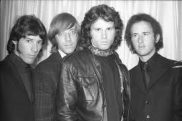 The Doors
The DoorsIn wilderness years, we’re “a stranger in a strange land.” Remember that Doors song:
People are strange
when you’re a stranger.
Faces look ugly
when you’re alone.
Women seem wicked when you’re unwanted.
Streets are uneven, when you’re down.
And yet.
And yet, in some cosmically ineluctable way, the experience of feeling in exile is necessary. It’s indispensable to our evolution. Why? Because we, whether we realize it or not on our wilderness passage, are seeking to free ourselves from an Inauthentic Self. From who we were. From what others expected of us, even if those expectations were and are entirely well-meaning.
THAT’s what we’re in exile from. So when we encounter new people and they react to us as if we are strangers, “not from here,” as painful as that experience is in the moment, that’s exactly what we need. I’m thinking of a time for me in New Orleans, where I was totally a stranger. Nights on rainy streets in the French Quarter, then working on oil rigs in the Gulf. What was I doing there? Nobody knew me. And though I hated it, it cut me free from all conceptions of who I was or would be or could be.
When you’re strange,
faces come out of rain.
When you’re strange,
no one remembers your name,
When you’re strange,
When you’re strange.
Sometimes we need to be strange. We need to be “cast out.” We have to be in exile, so that we’re open to hearing such wisdom and imbibing such hard truths as we would never accept if we were not “strangers.”
We have to be desperate to face the truths about ourselves that we’ve been in denial of all our lives. That’s the sense that makes “wilderness years” so powerful and so productive.
The post Wilderness = Exile first appeared on Steven Pressfield.October 12, 2022
In the Wilderness
I’m thinking about my friend Gil, who served three years in prison.
That’s the wilderness.
Other mates have endured years-long ordeals enslaved to alcohol, drugs, trauma, PTSD, self-dramatization, toxic family dysfunction, you-name-it.
That’s the wilderness.
 My friend Gil at Pro Camp, Gold’s Gym, Venice CA 9/28/22
My friend Gil at Pro Camp, Gold’s Gym, Venice CA 9/28/22Think about artists stuck in denial of their gifts … or too terrified to find or embrace their calling. Henry Miller worked for the phone company. Salman Rushdie toiled in advertising. Charles Bukowski labored for the post office. For years!
That’s the wilderness.
It seems that, one way or another, each of us must undergo a passage—internal, external, or both—of exile and estrangement from ourselves. I’ve touched on my own peregrinations in The War of Art and other books. I drove tractor-trailers, I picked fruit, I worked as an oilfield roustabout. I was lost lost lost. Yet in the end, when I finally emerged from this passage, I came to consider it the most fertile and cosmically-alive time of my life—and utterly indispensable to my evolution as a writer.
I’m starting a video series on Instagram on this subject. I’m calling it “In the Wilderness.” I’ll keep the videos short, and I’ll post them here as well as on IG, etc. weekly or maybe even more frequently.
Full disclosure: part of my motivation is to draw attention to an upcoming book of mine called GOVT CHEESE, a memoir of my “lost years” that I’ve always wanted to write but never found the guts to.
I’m also hoping that this video series will work as a standalone examination of this most critical (and creative) period in all of our lives—our years in exile from ourselves and from our calling.
P.S. Gil finished a second college degree (he already had one) while he was behind bars. He’s doing great now–and he has been for years. And for sure he’s never going back.
The post In the Wilderness first appeared on Steven Pressfield.October 5, 2022
Attention = Power
I was listening to a Dan Sullivan recording about the power of ATTENTION. (Dan is one of my primary gurus for anything creative or entrepreneurial.) Dan was making the point that
Where we put our attention defines who we are and shapes what we will become.
This got me thinking. I asked myself, “Where do I put MY attention?”
Most people, Dan said, put theirs on family, career, community and politics, health, finances, etc.
Not me. Thinking about it, I realized that I put my attention on the unknown or as-yet-unrevealed content of whatever book or story I’m working on.
 Susan Cain, author of “Quiet”
Susan Cain, author of “Quiet”If you’re an artist, a mathematician, a composer, a theoretical physicist, an entrepreneur or anybody in that general universe, what you’re interested in is something that doesn’t exist yet.
Or, perhaps more accurately, something that does exist but whose contours have not yet revealed themselves.
This is the creative life.
This is the artistic calling.
It’s our vocation, yours and mine, not so much to deal with What Is, i.e. the material world and immediate matters of mortal flesh. Our calling is to bring forth What Will Be.
Are we weird? Are we crazy? Susan Cain, in her very thought-provoking book, Quiet, makes the case for introverts—not as geeks and outsiders but as the indispensable creators of society’s future.
In my writing work, I feel sometimes like a spelunker entering a dark cave. I’m exploring an inner world, a world that exists only in imagination. My only source of illumination is the light on the peak of my miner’s helmet. My attention is on the dark. I shine my light and try to see what’s there.
If that makes me a weird or crazy introvert, so be it. That’s where my attention is, and that’s where I’m gonna keep it.
The post Attention = Power first appeared on Steven Pressfield.September 28, 2022
Does Your Novel/Movie have an Understory?
If it’s true that the Understory (the unspoken story-beneath-the-story) is more important than the Surface Story—and that it’s what REALLY pulls the reader/viewer through the drama—then what exactly is this thing? Where do we find it? And how do we as writers know if we even have one?
Principle #1: the Understory plays out on the landscape of the soul.
Consider Huckleberry Finn. Who’s the villain? The surface villains are those forces that pursue Jim, the runaway slave, and would recapture and return him to bondage if they could.
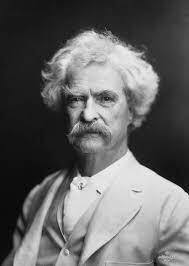 Mark Twain
Mark TwainThose are the Surface Villains. But the deeper villain, the Understory Villain, is inside Huck’s heart. It’s his own belief, brainwashed into him from birth, that Black people are inferior to Whites and that it’s God’s will that they be enslaved to Whites.
Huck really believes this. Even as he’s fleeing with Jim on a raft on the Mississippi and working with might and main to get Jim to safety, he is wracked by guilt. All the elders in his life, Miss Watson who raised him, would condemn Huck furiously and punish him by the sternest possible measures if they knew how close he was coming to Jim and how bound the two of them were becoming as friends.
This is the Understory. Not the surface events on the Mississippi but the changes in Huck’s heart. The Villain is the notion inside Huck that White is superior to Black and that this dispensation is the will of the Almighty, enforced upon individual mortals, Black and White, beneath pain of hell and damnation.
The beats of the Understory are the moments in real time when Soul Reality, i.e. Jim’s trueness of heart, his kindness, his integrity, and his love for Huck give the lie to this notion that is embedded in Huck’s very cells.
The climax and moral crisis of Huckleberry Finn comes at the very end when Huck sits down to write a letter to Miss Watson (remember, she OWNS Jim), turning Jim in. Huck actually pens the full epistle. Why not? Huck believes in his very bones that to abet Jim in escaping from slavery will be requited in Huck’s afterlife by fire and brimstone.
Then comes this moment:
It was a close place. I took . . . up [the letter I’d written to Miss Watson] and held it in my hand. I was a-trembling, because I’d got to decide, forever, betwixt two things, and I knowed it. I studied a minute, sort of holding my breath, and then says to myself: “All right then, I’ll go to hell”—and tore it up. It was awful thoughts and awful words, but they was said. And I let them stay said; and never thought no more about reforming.
See what I mean about the Understory being played out on the landscape of the soul?
I’m working on a new novel right now. I’m asking myself, as I wrestle with its structure and concept, “What’s the Understory? Where does it play out? Is it happening on the landscape of the soul?”
I’ve never really applied these criteria to any story as part of the process of working on it. It’s a helluva deep exercise. I highly recommend it to all of us.
The post Does Your Novel/Movie have an Understory? first appeared on Steven Pressfield.September 21, 2022
The Muse Strikes Again
I’ve been collecting Muse stories. Here’s an amazing one from Krista Tippett’s podcast, “On Being” (which I highly recommend subscribing to). It’s an exchange between the host, Ms. Tippett, and her guest, Elizabeth Gilbert, the author of Eat Pray Love, Big Magic, and many more—and a great and deep believer in forces that “are not dreamt of in your philosophy, Horatio.”
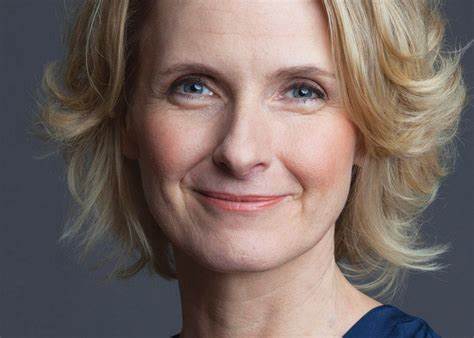 Elizabeth Gilbert
Elizabeth GilbertHere’s the exchange, verbatim:
MS. GILBERT: Yeah, this is the most magical thing that’s ever — and when I say “magical,” I mean it very much in the Hogwartsian sense of “magical.” I had an idea for a novel, and it was to be about a — I’ll just summarize it very quickly — a middle-aged spinster from Minnesota who had been working at the same company for 25 years and was quietly in love with her married boss, who sort of — she was invisible to him. He gets involved in a very ill-advised scheme down in the Amazon jungle and sends a bunch of money and a person down there, and the money and the person disappear. And then he sends her down there to figure out what happens, at which point her orderly life is flipped upside down into chaos. And it’s also a love story. And I wrote a proposal for this novel. I got a book advance for it. I started working on it. I was doing research for it. And then I got waylaid by some other things that were going on in my life and ended up writing a completely different book, and I left it aside. And when I came back a few years later, I found that the life force energy, for lack of a better term, the spirit of that book was no longer there.
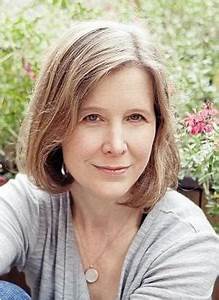 Ann Patchett
Ann Patchett
And around that same time, I met and made friends with the novelist, Ann Patchett. And we had this very dynamic and exciting meeting where we admitted that we loved each other’s work, and she gave me a big kiss right on the lips. And we became pen pals, and we started writing letters to each other. And about a month later, she wrote me a letter saying she had just started working on a book about the Amazon jungle. And I told her, “Well, that’s so strange. I had been working on one too, but it’s gone.” And then a few months later, we met, and she said, “Tell me what your Amazon book was about.” And now she was 100 pages into hers. And her book, which of course became the extraordinary novel State of Wonder, was a book about a middle-aged spinster from Minnesota who’d been working for this company for 25 years and had been quietly in love with her married boss to whom she was invisible. And it was exactly the same story. And then we did that thing that pregnant women do, where they count backward to figure out when conception occurred, right?
MS. TIPPETT: [laughs] Who got pregnant first. Right.
MS. GILBERT: And so we did the math, and it was really at the same time that I had lost mine that she had gotten hers. And we like to think that the idea jumped from my mind to hers during our little kiss that we had when we met. That’s our magical thinking around it. But it’s — there is no explanation for that other than the one that I’ve always abided by, which is that ideas are conscious and living, and they have will, and they have great desire to be made, and they spin through the cosmos, looking for human collaborators.
 Krista Tippett
Krista TippettIn last week’s post we were talking about Story and Understory. It’s the Understory here that’s a mind-blower to me. On some unseen dimension, did the goddess set a sell-by date onto Elizabeth Gilbert’s original story idea? And when that date expired, did she, the Muse, look around for another brilliant female mind to “pass it on” to?
I believe it.
And then how about the mode of passage? A kiss. What inspired this gesture? Or more precisely, WHO inspired it?
I guess the moral is: if you want to hang onto your story, don’t kiss anyone on the lips.
The post The Muse Strikes Again first appeared on Steven Pressfield.September 14, 2022
Story and Understory
Have you watched any of “My Life as a Rolling Stone” on EPIX? In Episode Two, somebody observes of Keith Richards, “He could sit for hours playing two chords over and over, just waiting for the rest of the song to appear.”
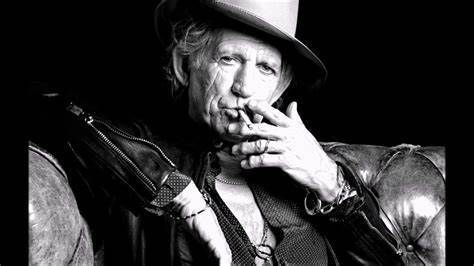 Keith Richards
Keith RichardsWhen I heard that, I thought at once, “Keith had the Story; he was waiting for the Understory to reveal itself.” Or it could have been the opposite. He might have had the Understory (those two chords and the riff they produced) and was searching for the Story.
Some stories have no understory. Everything is on the surface. Will the Outlaw Josey Wales track down and kill his turncoat commander Fletcher and the bad Redleg who murdered Josey’s family? Will Conan the Barbarian catch up with and hack to pieces the Evil Barbarians who murdered his family? Will Liam Neeson find and wreak vengeance on the sex traffickers who kidnapped his daughter?
But the best dramas (and comedies) have a Story and an Understory. Oddly enough, it’s the Understory that we readers and audiences are hooked by. In When Harry Met Sally, the Story is the adventures of Billy Crystal and Meg Ryan over the course of their college and post-college years. The Understory—the question the movie asks—is “When will Billy Crystal realize that he’s in love with Meg Ryan and that they can be both friends and lovers?”
That question is what pulls you and me through the story. We’re really following the Understory, not the Story.
But back to Keith Richards. The Story in any song is the melody/lyrics. That’s “on top.” That’s what we hear first. But beneath the melody is the countermelody, the backbeat, and the bass line. Those are the Understory. It’s those that we dance to. It’s those that hook us. Those are what we’re really hearing, even as we sing along with the lyrics.
The Understory, by its very nature, is embedded in the Story. That’s what Keith was searching for when he played those two chords over and over. “What beat/counter-melody does this riff want to have?” He knew it was in there somewhere. He was just waiting for it to show itself.
In any story I’m working on, I keep a file called UNDERSTORY. I ask myself, “What’s really going on beneath the surface of this narrative?” Is the hero changing? Is she in denial of some aspect of her life that she’ll have to confront head-on in the climax? Is she building, little by little, throughout the story, to some breakthrough that will change everything for her?
Is Michael Corleone, increment by increment, becoming the Don? Is Sara Conner, little by little, evolving into a self-contained individual and hero in her own right?
If you and I are writing any story (or song), we need to ask ourselves, “What are the beats of the Understory?” Can we track Jimmy McGill/Saul Goodman’s evolution, beat-by-beat, as his internal transformation plays out?
If you haven’t listened to “Gimme Shelter” or “Jumpin’ Jack Flash” in a while, try them again and tune into the unkillable Understory beneath
Ooh, well, a storm is threatenin’
my very life today
and
I was born
in a crossfire hurricane.
The post Story and Understory first appeared on Steven Pressfield.


